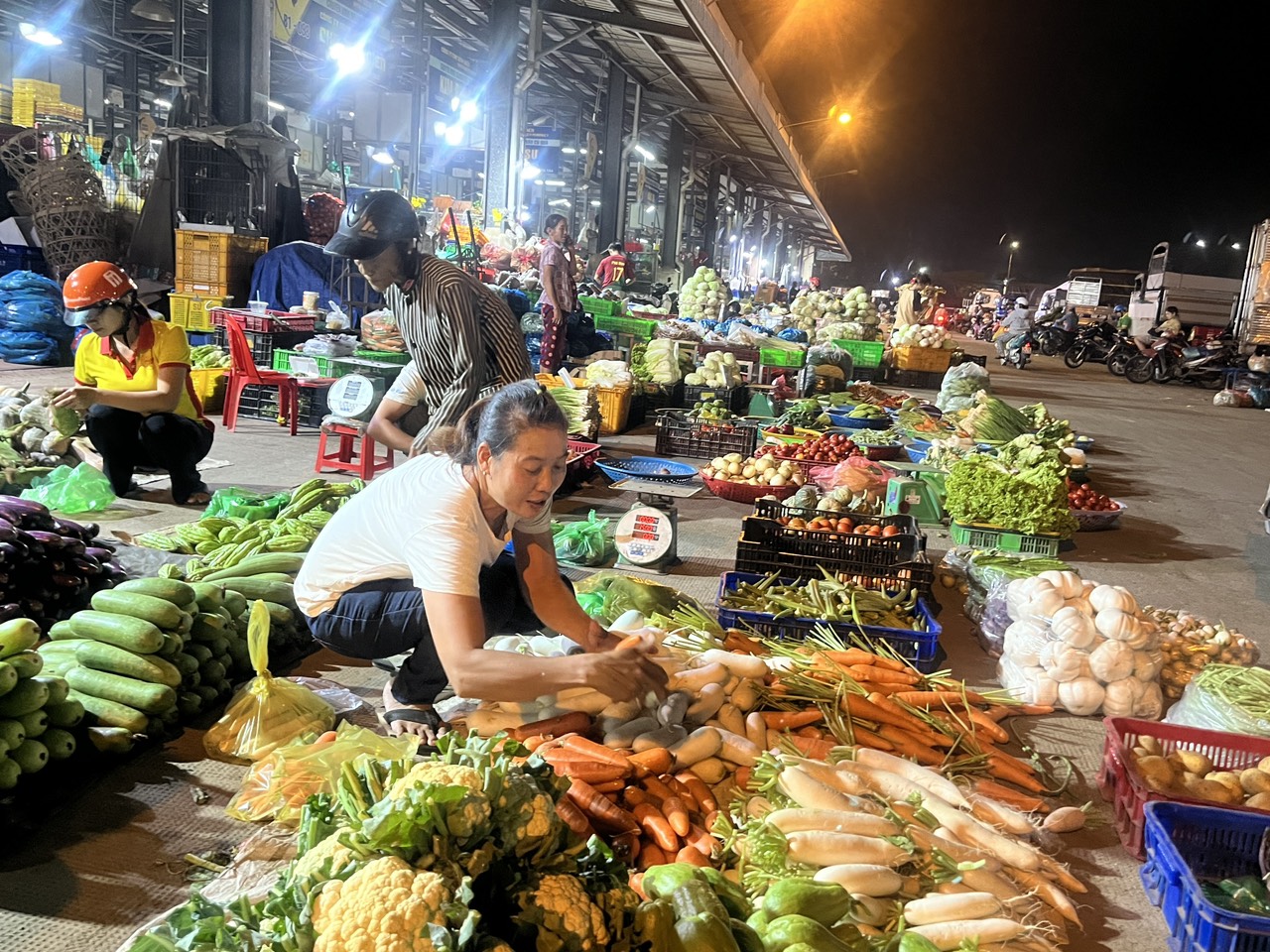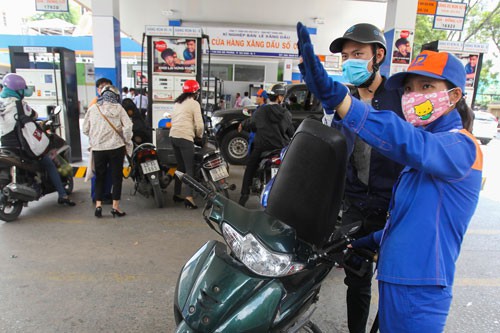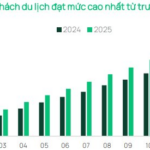
Many manufacturing industries have experienced a significant rise in the cost of raw materials and fuel, coupled with extreme weather conditions in the early months of 2024. These factors have directly impacted the prices of goods and services for consumers. Facing the inevitable, many businesses have had to raise their prices.
Overwhelming Pressure to Increase Prices
Ms. Nguyen Kim Hoang, a resident of District 8 in Ho Chi Minh City, was taken aback upon her return from a two-month vacation to find that prices of various goods in the market, including rice, spices, meat, fish, vegetables, dried shrimp and coffee, among others, had increased.
A survey in Ho Chi Minh City’s market revealed price hikes across most product categories, especially food items and cosmetics. Within the food group, prices of vegetables such as spinach, tomatoes, beets, horn peppers, cowpeas, spring onions, carrots, and lettuce have soared since the beginning of May. Notably, the price of tomatoes has doubled or even tripled compared to the same period last year, reaching approximately 50,000 VND per kg for regular tomatoes and 80,000 VND per kg for beef tomatoes.
Ms. Huynh Ngoc Bich Dao, CEO of Dong Xanh Farm, attributed these price hikes to the extreme weather conditions, which have significantly affected the yield and production of vegetables and fruits in Da Lat, Lam Dong. According to Ms. Dao, due to the localized scarcity of supply from Lam Dong, many businesses and traders have offered to purchase their products at prices 20% to 30% higher than what the company currently sells to supermarkets. However, she added that the company has a strategic partnership with a large supermarket chain and always prioritizes supplying them with stable prices.

Keeping Gasoline Prices Steady While Increasing Diesel PricesREAD NOW
The marketing director of a large supermarket chain shared that they have received numerous requests from suppliers to increase product prices, mostly for dried and processed foods, cosmetics, and cleaning products. Not only small-scale suppliers but also some large-scale ones that dominate the market have notified them of price changes.
Last week, a company specializing in importing and distributing cooking oil was surprised to receive a notification from their foreign partner about a 60% increase in the price of olive oil, with other types of cooking oils also experiencing significant price hikes. Domestically, cooking oil manufacturers confirmed that raw material prices are also on an upward trend. “Cooking oil is not just a daily consumer product but also a raw material for producing various food items. The increase in oil prices will put pressure on businesses regarding the prices of their products,” remarked the director of a cooking oil import company.
Mr. Pham Ha Thanh Le, Marketing Director of An Thai Coffee Company, shared that the price of coffee beans had surged to 150,000 VND per kg, three to four times the normal rate, just a couple of weeks ago. As a result, the selling prices of instant coffee and ground coffee had to be adjusted upward by 30% to 40%.
Mr. Nguyen Ngoc Luan, Director of Lien Ket Thuong Mai Toan Cau, a coffee company under the brand Meet More, also struggled with the rising coffee prices. He mentioned that they dared only increase their prices by about 10%. “We regularly communicate with our customers to help them understand that price increases are unavoidable,” he said.
Maintaining Stable Prices to Sustain Consumer Demand
According to the latest report by Kantar Vietnam, Vietnam’s fast-moving consumer goods (FMCG) market experienced negative growth in the first quarter of 2024, despite the Tet holiday period, as consumers continued to spend cautiously.
Given this reality, many businesses view price increases as a last resort. Mr. Nguyen Dang Hien, CEO of Tan Quang Minh Company (Bidrico brand), explained that when gasoline and production material prices surge, product prices must increase by at least 10% to 15% to cover costs. “The company has had to cut production costs, reduce waste, rationalize the use of machinery and equipment, and optimize communication and distribution expenses to keep prices down. However, we have also had to consider adjusting the prices of some products slightly,” Mr. Hien expressed.
Sharing his experience in the food production industry, Mr. Nguyen Anh Tuan, Deputy General Director of Miliket Colusa, emphasized the importance of forecasting and raw material reserves to minimize the impact of price shocks. Additionally, he underscored the need to promote production improvements and invest in new technologies to save energy, as this is a crucial factor in reducing production costs.
“From the beginning of the year until now, the main raw materials in the production of instant noodles, buns, and pho have increased by 5% to 10%, with some even rising by 20%, depending on the product category. Flour suppliers continue to announce price increases. While price increases are inevitable, what matters is the market’s acceptance. Consumers are still being frugal and cautious with their spending, only purchasing what they truly need. Therefore, businesses must carefully calculate before deciding to adjust prices,” Mr. Tuan observed. He added that Miliket Colusa had informed customers about their plan to increase prices by 3% to 5%, along with a support program for distributors and sales partners to boost consumer demand.
-

Keeping Gasoline Prices Steady While Increasing Diesel PricesREAD NOW
Many supermarkets are also striving to delay price increases. Ms. Nguyen Thi Bich Van, in charge of communications at Central Retail Corporation, shared that despite the fluctuations in input costs, their system is working hard to maintain stable prices to sustain consumer demand.
Mr. Vo Tran Ngoc, Director of Business at Saigon Co.op, revealed that most vegetable and fruit suppliers had notified them of price increases ranging from 10% to 15%. However, as a unit participating in price stabilization, Saigon Co.op proactively worked with suppliers and signed agreements to guarantee the supply of certain products. For processed food items, the requested price increase ranged from 10% to 20%. To cope with this situation, Saigon Co.op, with the advantage of having distribution centers in Binh Duong, the Mekong Delta, and the North, has proactively negotiated with suppliers and stockpiled goods to ensure sufficient supply at reasonable prices.
Similarly, for consumer and cosmetic goods, Saigon Co.op negotiated with suppliers to refrain from raising prices to share the difficulties faced by consumers amid the current low purchasing power. “We proactively collaborate with manufacturers to reduce profits and ensure price stability,” Mr. Ngoc emphasized.
Implementing Comprehensive Solutions
According to economic experts, as Vietnam has deeply integrated into the global economy, the pressure on price increases and inflation in 2024 is exceptionally high.
To ensure market price stability and control inflation in line with the National Assembly’s goals, it is necessary to implement comprehensive solutions. This entails the coordination of various levels of government and authorities, as well as collaboration with manufacturers and distributors, to maintain stable prices for essential goods. This will help stabilize consumers’ psychology and encourage them to spend more.
Mr. NGUYEN NGUYEN PHUONG, Deputy Director of Ho Chi Minh City Department of Industry and Trade:
Supporting Low-Income Earners with Their Purchases
Ho Chi Minh City still has a significant number of low-income earners, vulnerable individuals, and people living in poverty. Even small fluctuations in the prices of essential consumer goods can significantly impact the lives and spending of this group. The Department of Industry and Trade has proactively coordinated with other departments, sectors, and businesses to promote the market stabilization program, aiming to reassure consumers about their spending and purchases.
Specifically, the market stabilization program in Ho Chi Minh City this year has added ten participating businesses, offering a wider range and larger quantity of stabilized products compared to previous years. Additionally, the Department of Industry and Trade has collaborated with units to support traditional market traders, supermarkets, and commercial centers in integrating e-commerce to increase sales channels and launch meaningful promotional programs to stimulate demand.
Mr. VO TRAN NGOC, Director of Business at Saigon Co.op:
Increasing Promotions to Stimulate Demand
At this point, Saigon Co.op has been able to maintain price stability and can ensure that prices of vegetables, fruits, processed foods, cosmetics, and other items will remain unchanged for the next three to four months.












